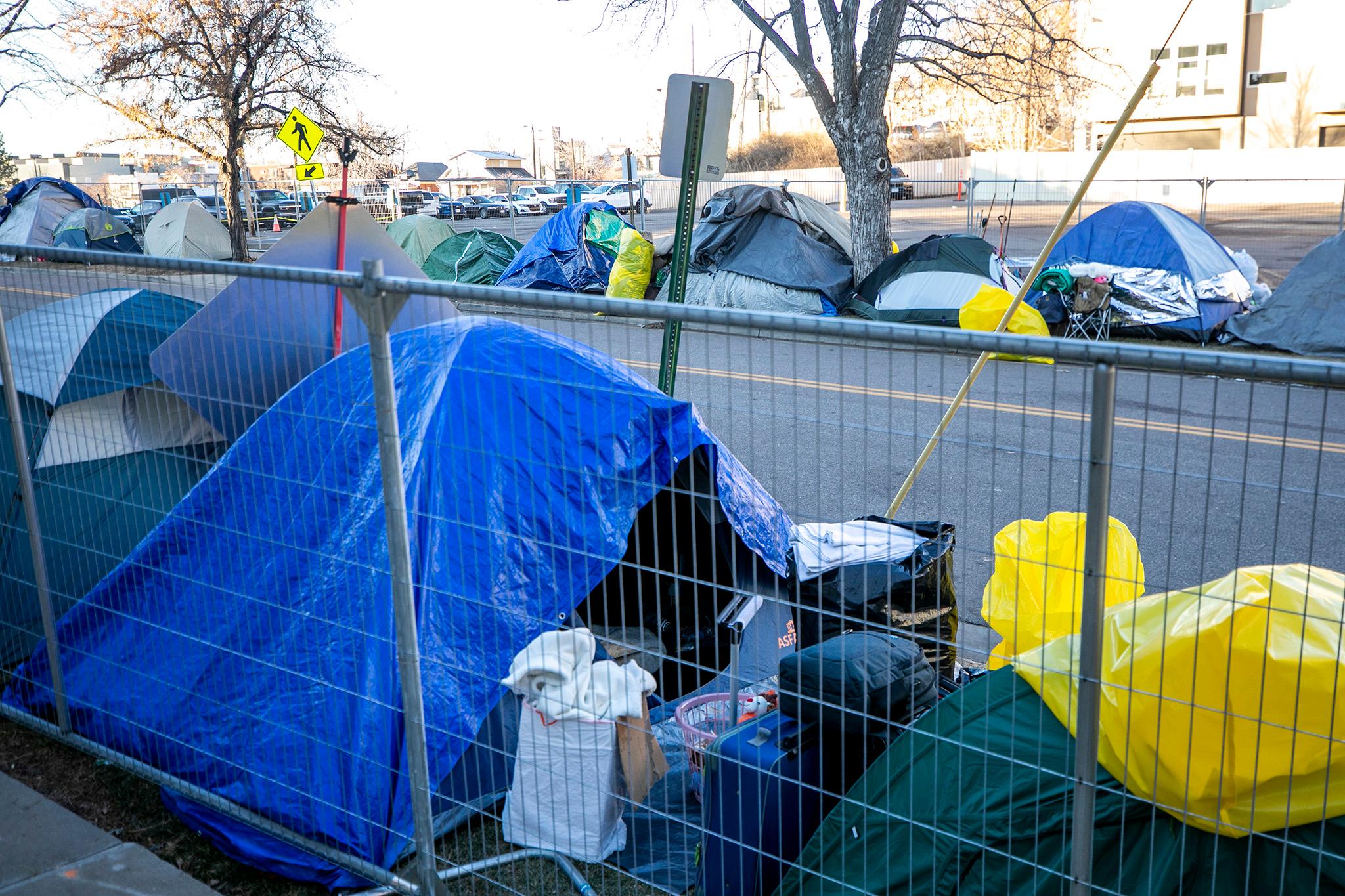When police officers and city workers showed up at an encampment on the edge of Jefferson Park on Wednesday morning, people ran. Amy Beck, an advocate who's been working with migrants living in tents around the intersection of Zuni Street and Speer Boulevard, said they feared their months-long journeys from Central and South America might end in arrest.
"These people don't know what's going on. They don't know what to do. They don't know what to expect," she said. "None of these police officers here speak Spanish. And so they're not even able to communicate with people that are trying to come in and out of the fences."
The camp had been here for months, as hundreds of people seeking better lives in the U.S. were kicked out of a nearby motel that the city opened as a shelter during the pandemic's early days. That happened after a set time limit or, in some cases, for rules violations. Shelters like these have been overwhelmed as more and more people arrive in town from the border, so officials put time limits on how long people could stay. When they had to leave their rooms, many just settled down in tents nearby.
City Council member Amanda Sandoval said people here were given a few options once officials decided to clear the camp: Take a ride to a newly reopened emergency shelter, or take a bus ticket and try their luck somewhere else. Some worried what would happen after they left their tents, but Sandoval insisted this needed to happen.
"I do not want families and people out in tents anymore," she said. "It's not safe."
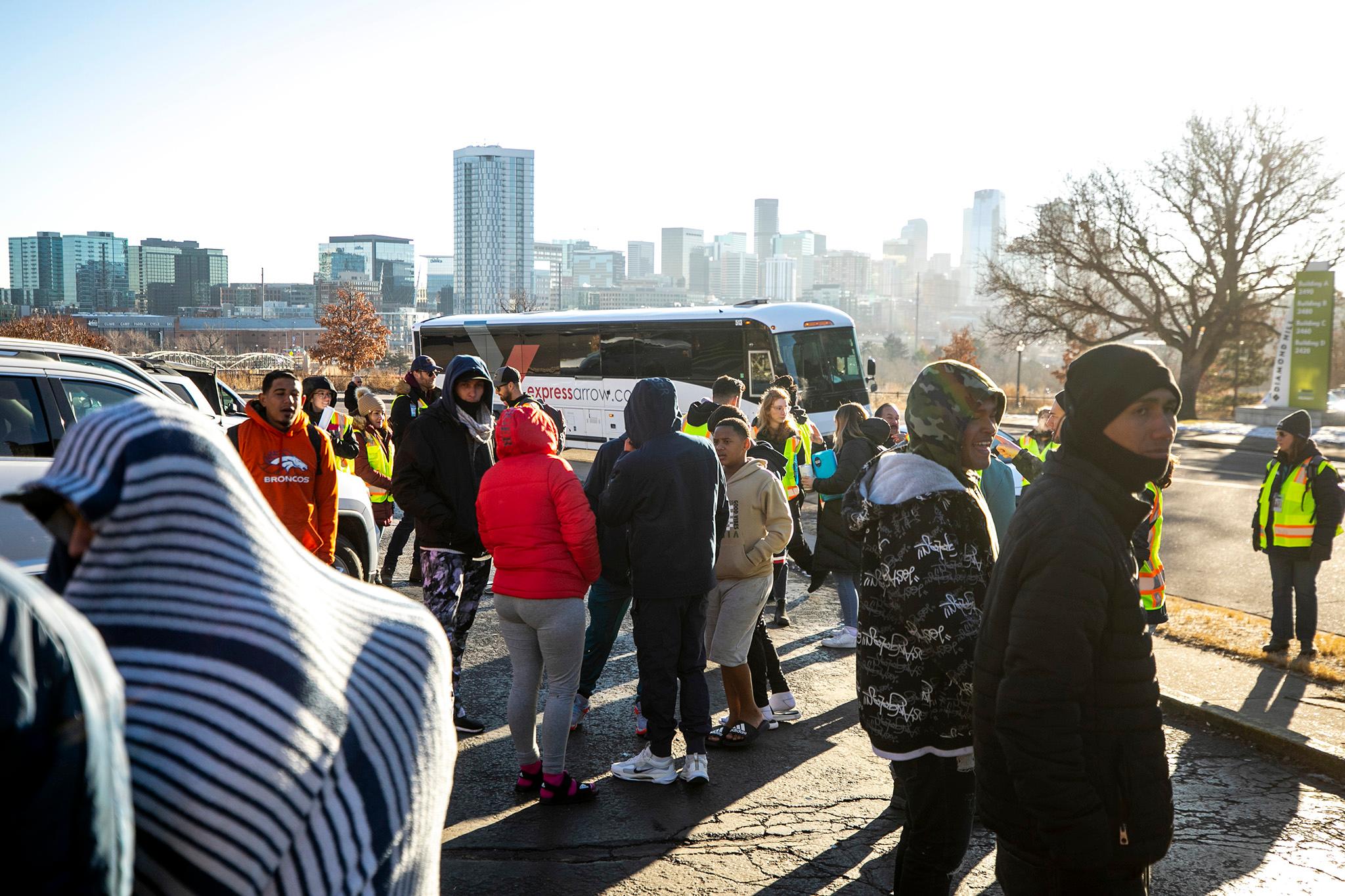
Officials reopened two facilities on Wednesday, where people leaving this camp can sleep on floor mats.
They were locations that the city used during the emergency that former Mayor Michael Hancock declared this time last year. Jon Ewing, a spokesperson for Denver Human Services, asked us not to share their locations, as a precaution to protect people in those shelters.
Ewing said they have capacity to house about 320 people. But this is another temporary solution, he added. The two shelters are slated to stay open for 30 days, though that period could be extended. The goal, he said, is to move people from these emergency shelters into more permanent housing. The city is taking a "see how it goes" approach to anyone still looking for a place to live in a month.
"We're just going to have to continue working with them," Ewing told us. "We can't do this necessarily forever. It's just not going to work. We can't provide indefinite shelter periods."
Leading up to the encampment's closure, Ewing said officials and their nonprofit partners were able to get rental applications filled out for 300 people from the Zuni Street camp, about 95 of whose have already been approved. The city is offering to cover first month's rent and security deposits for people in this camp, which Ewing said is being paid for by a $330,000 pool of cash set aside by City Council members in November.
"If you see a City Council member, give them a high five," he told us. "They really came through for us on that."
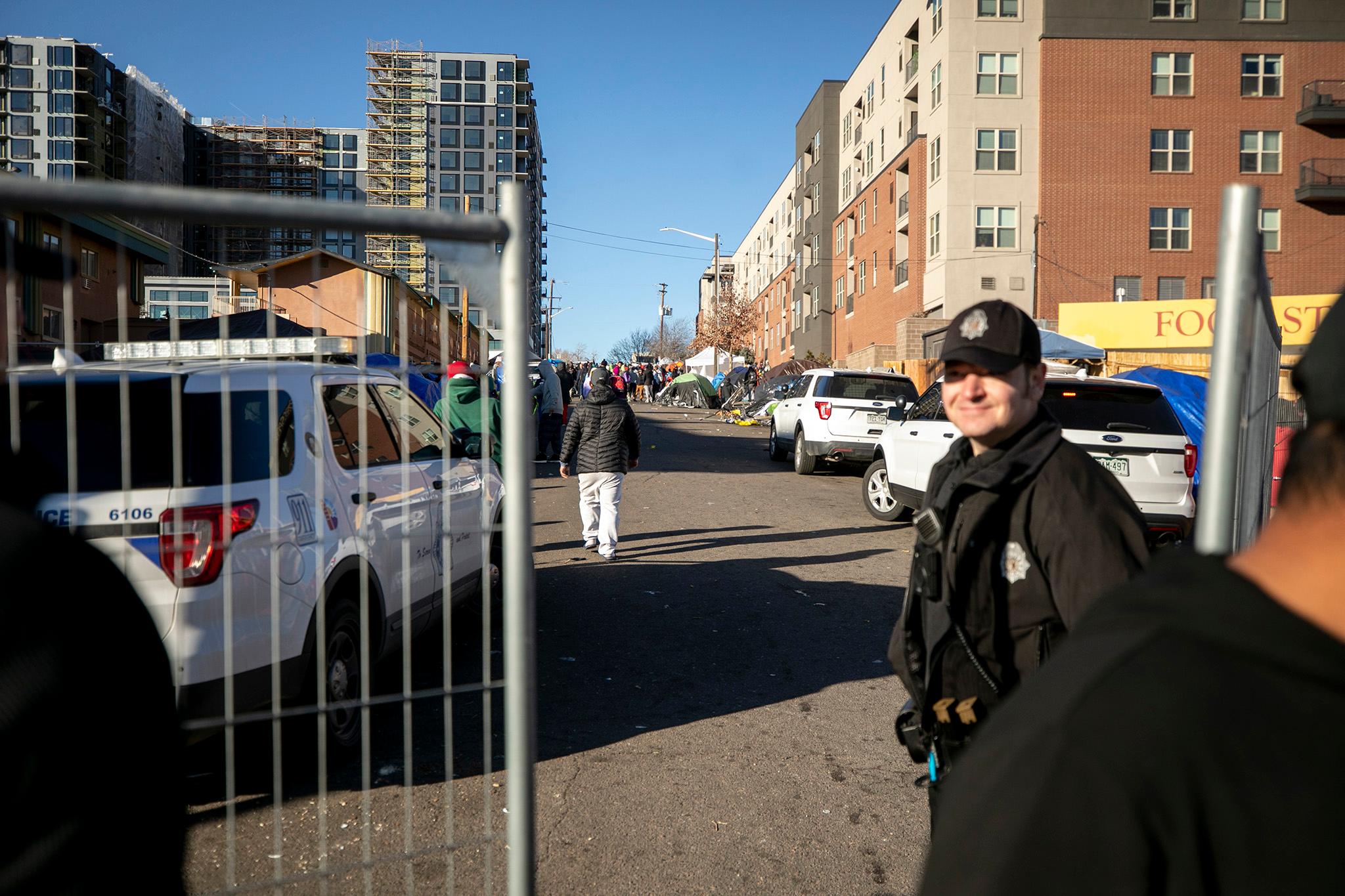
Ewing also said officials may expand that aid to other migrants who need to get off city streets. While the Zuni Street camp has been wiped from the sidewalk, there are other places, under bridges and tucked away in industrial areas, where many more new arrivals are hunkered down in tents.
"The idea is the moment they get in here, just keep connecting them with the housing resources," he said, "do everything we can, full-court press to try and get you to working and self-sustainability."
But work access has been a barrier. People without incomes may not have access to leases, Ewing said, regardless if the city is helping with deposits.
President Joe Biden's administration has been working to shorten the wait time for some newly arrived migrants to access legal employment, which is now down to about 30 days for people who crossed legally into the country using an app developed for U.S. Customs and Border Protection. Mayor Mike Johnston, along with a group of big-city mayors, has been asking the federal government for faster pathways to work, saying it's the only way to relieve the weight all these new arrivals have added to his city budget.
Everyone - officials, activists and encampment residents - wanted somewhere warm for everyone to go. Still, the way things went down caused some controversy.
Juan Carlos Pioltelli has lived in the Jefferson Park camp for months, after his 30 days in the Zuni Street motel expired. He was one of the few there who could speak English, so he emerged as a leader among the hundreds outside when press, activists and City Council members emerged to understand what was happening there.
He's endured freezing temperatures during his time in Denver, but he said the grueling journey he took with his ex-wife and son from Venezuela was still worth the danger and effort. There was nothing for them there.
"Yes," he said. "We sacrificed a lot of things to come here, and we walked many days."
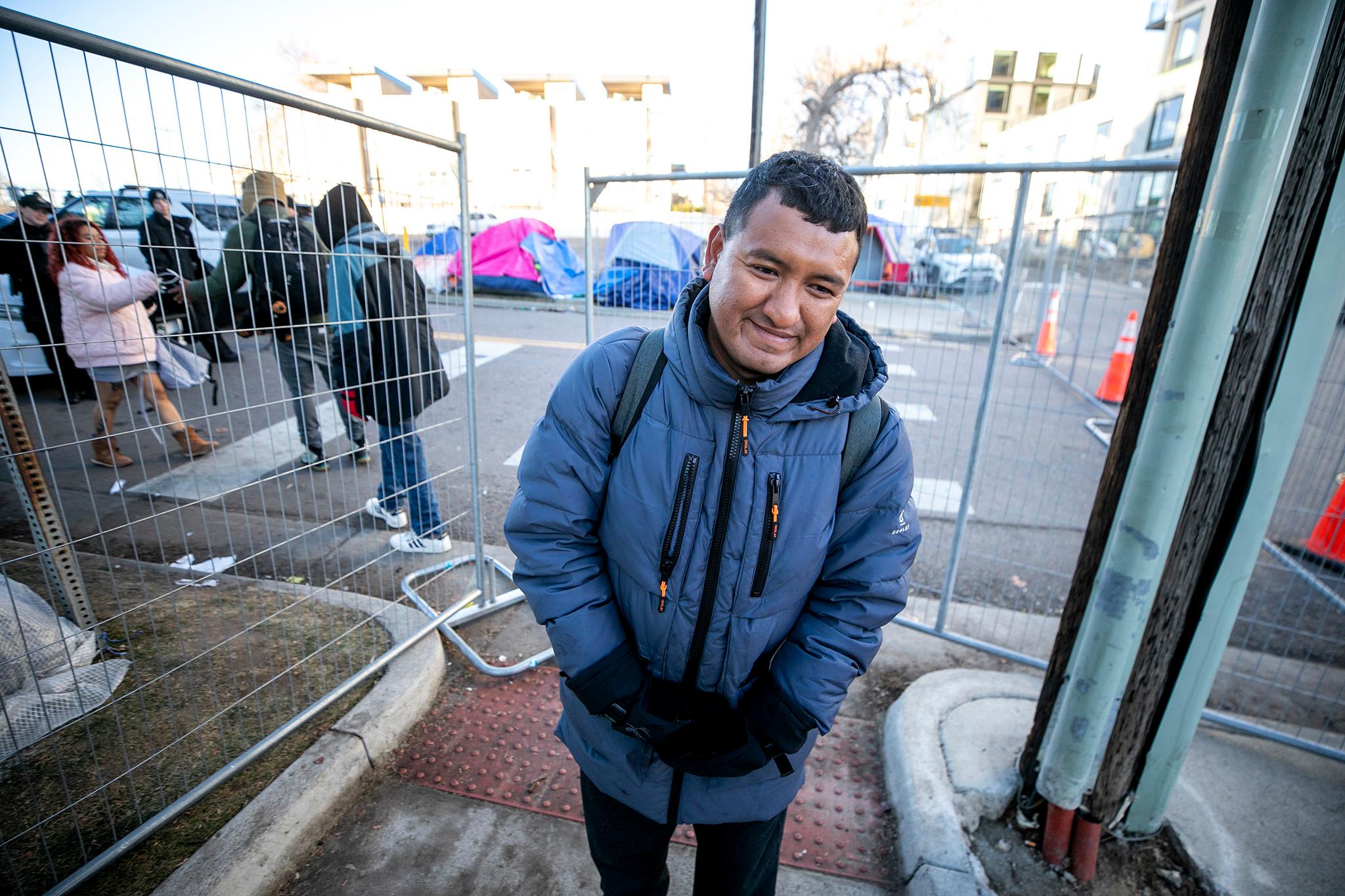
Pioltelli confirmed that his neighbors worried in their tents as the cleanup begun Wednesday morning. Many migrants aren't used to getting help from police, and others worried they'd be split up and lose contact with people they they've come to rely on. He expressed those concerns to City Council on Tuesday, during their weekly public comment period.
"Some of them are scared because some people are telling that they're going to [be taken] in some bus, but they don't know where," he said, adding that the scene itself was unsettling for many. "There's too many cops here."
Ewing said police were not present to arrest people who didn't opt for the shelter or a bus ticket, just to keep things in order as so many people prepared to move, like when a fire broke out in one of the tents, casting flames high into the air.
"They're just here to help," he said. "You saw we had a fire out of tent. So it's good to have some people who actually know what they're doing."
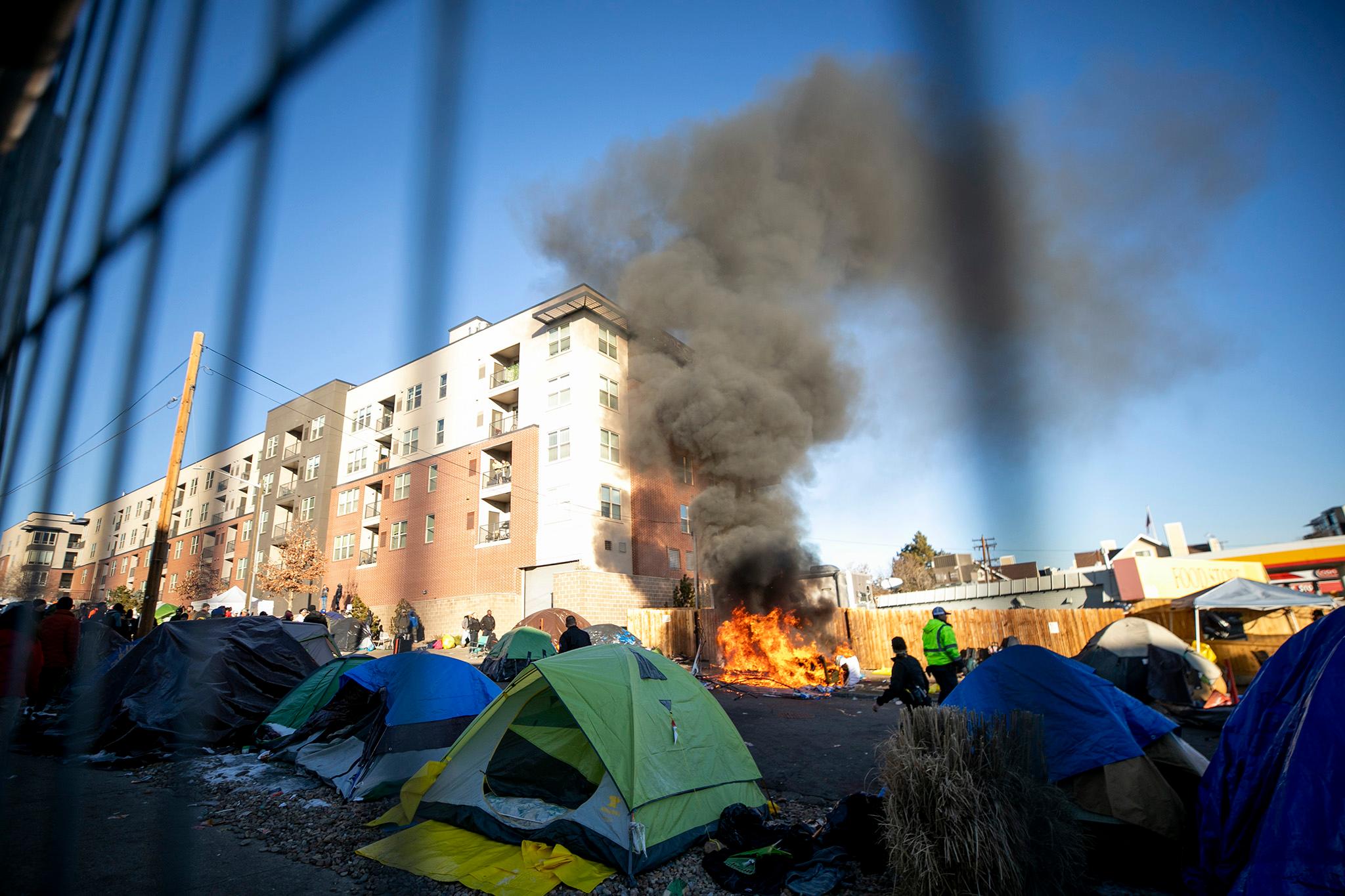
But activists like Beck, who've been in regular contact with Pioltelli, said the presence of police and fencing was unnecessary.
"They didn't need to come in with enforcement," Beck said. "What they should have done is just invited people to come inside. The city administration put these folks on the street, and all they needed to do was go tent to tent and invite them back inside."
City Council member Sandoval said city and nonprofit workers have been present, trying to get everyone here on the same page about what would happen when the camp closed.
"We have been going door-to-door for two weeks," she said, "literally every day since Thanksgiving. Every day."
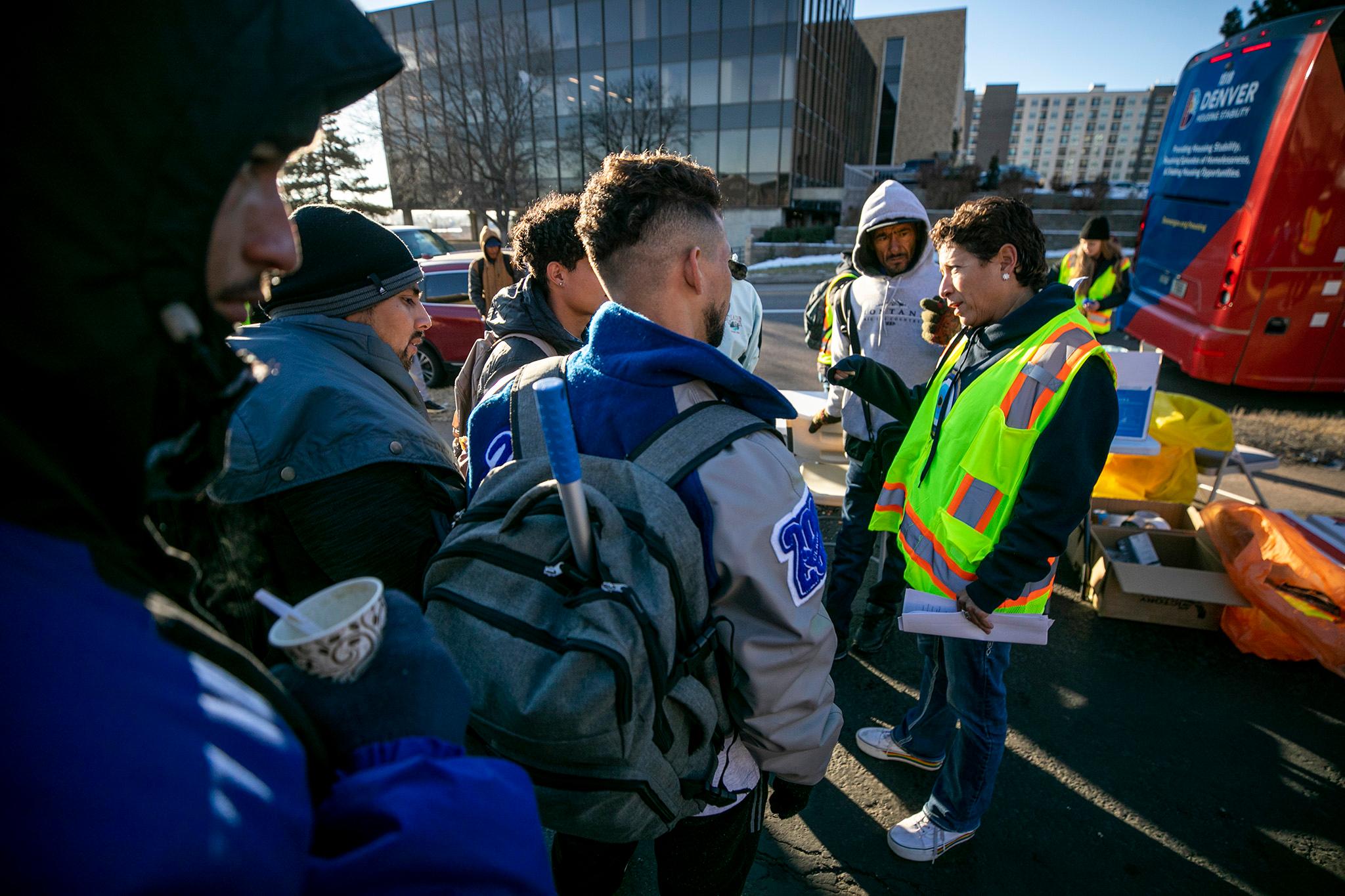
City Council member Sarah Parady said communication between officials and camp residents has generally been an issue.
"The communications challenge has been really unprecedented, and there's also language barriers involved," she told us. "It's very understandable that people are fearful of moving to a new location."
But she added that officials developed this plan "very much on the fly over the last two weeks."
Mayor Johnston's administration has responded to this crisis of unhoused migrants with "panic and reaction," Council president Jamie Torres told us in November, in part because former Mayor Michael Hancock's administration failed to develop a plan when arrivals dropped significantly last summer. And though residents of this one camp near Zuni Street have been moved inside, others have had to find their own pathways to safety as more and more people to arrive in town each day.
"It's the skin of our teeth sometimes," Ewing said. "We're trying to take care of as many people as we possibly can."

